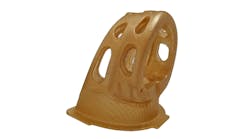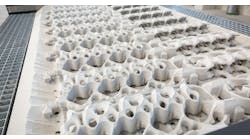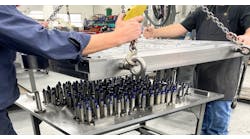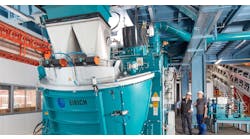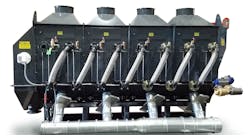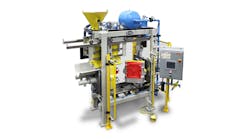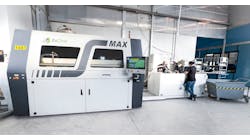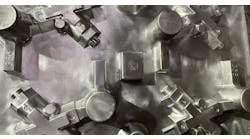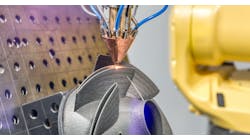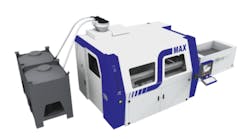The National Additive Manufacturing Innovation Institute, a federal applied R&D initiative now retitled “America Makes,” is providing new funding that will support metalcasting industry projects to develop additive manufacturing (AM) processes and capabilities. America Makes hosts collaborative efforts involving commercial and academic partners involving additive manufacturing and 3D printing (3DP) technology research, under the objective of improving U.S. manufacturers’ global competitiveness.
An initial funding progam overseen by NAMII/America Makes included research to improve mold and die repair using AM technologies.
America Makes announced the results of its second call for additive manufacturing (AM) applied research and development projects in January, involving $9 million in new funds for these projects, with $10.3 million in matching cost share from the awarded project teams.
Among these, the American Foundry Society will be aligned with the Youngstown Business Incubator in Ohio for a project called “Accelerated Adoption of AM Technology in the American Foundry Industry.”
The specific nature of the new R&D was not detailed.
The YBI coordinates “emerging” business intiatives by providing facilities, equipment, resource networks, entrepreneurial counseling, networking opportunities, and other services. In the AM research effort, YBI and AFS are in partnership with The ExOne Co., Humtown Products, Janney Capital Markets, and the University of Northern Iowa. The focus is to promote the transition of binder jet AM to small metalcasting businesses by allowing increased access to binder jet equipment and developing design guidelines and process specifications.
"... A Transformative Technology"
“The American Foundry Society is very excited to be a partner in this project,” stated Thomas Prucha, AFS vice president-technical services and project leader for the AFS team. “Additive manufacturing is a transformative technology that not only offers reduced lead times for prototypes and new product introduction, but could revolutionize how our industry approaches low volume production and afford our members the ability to make complex shapes not producible by traditional mold and coremaking processes.”
Some of the participants already have demonstrated profiency with AM technology: Humtown Products develops prototypes and molds for foundries and diecasters, using AM and 3DP; ExOne is among several developers of 3D printing machinery that work with sand and binder media; and the University of Northern Iowa recently added 3D printing capability for research and commercial efforts by its Metal Casting Center.
Work associated with the new R&D effort is expected to start early in the second quarter of 2014.
